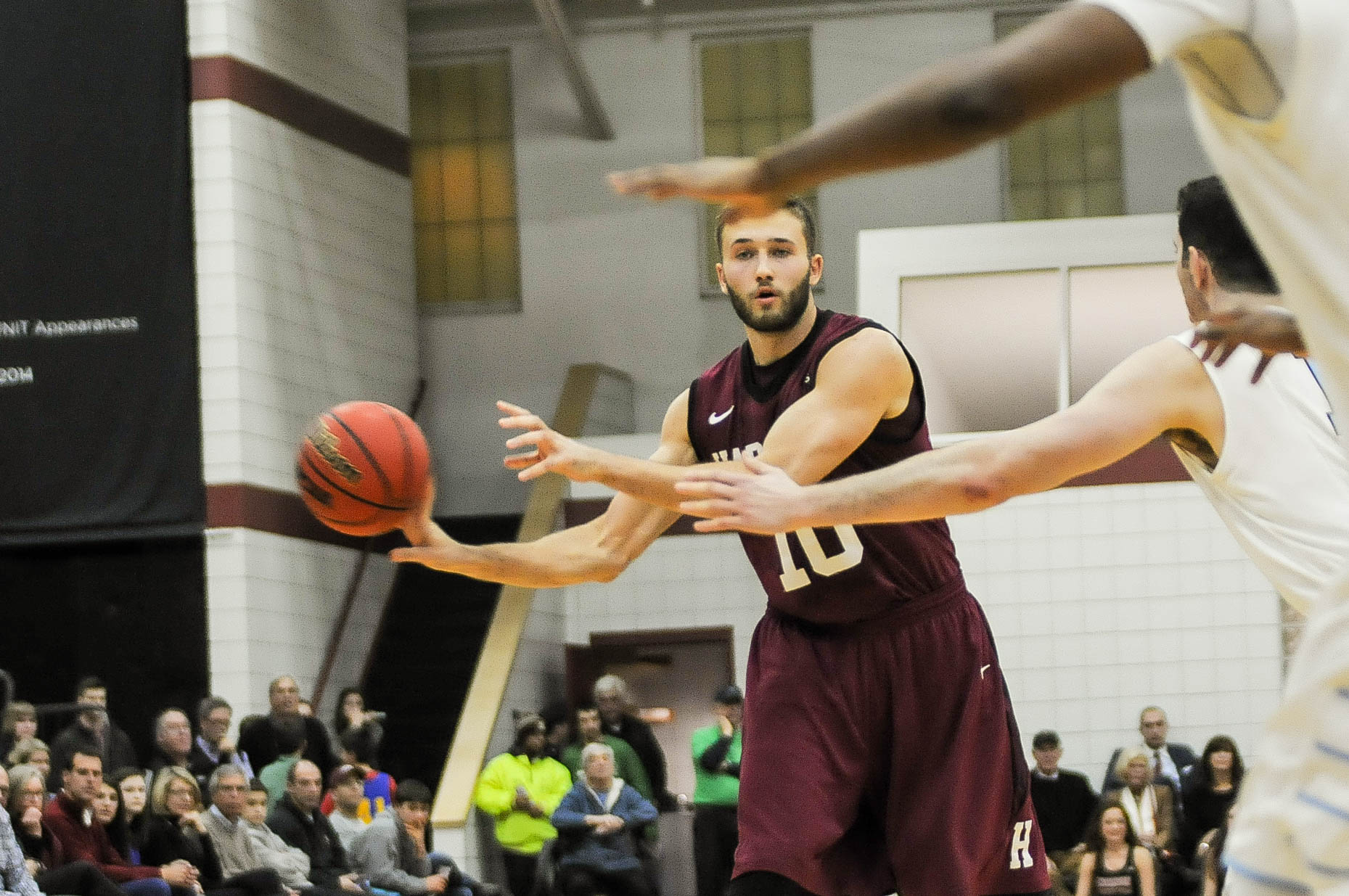
News
Harvard Alumni Email Forwarding Services to Remain Unchanged Despite Student Protest

News
Democracy Center to Close, Leaving Progressive Cambridge Groups Scrambling

News
Harvard Student Government Approves PSC Petition for Referendum on Israel Divestment

News
Cambridge City Manager Yi-An Huang ’05 Elected Co-Chair of Metropolitan Mayors Coalition

News
Cambridge Residents Slam Council Proposal to Delay Bike Lane Construction
Men's Basketball's Steeves Set to Transfer, Continue Playing Career After Graduation

After three years battling to get on the court, senior Patrick Steeves is refusing to leave.
The upperclassman, who sat out his first three seasons in Cambridge due to recurring injury, confirmed late Tuesday that he will transfer to another school for at least the 2016-2017 season. As a graduate transfer, Steeves would have at least one year of additional basketball eligibility—two if he receives the medical waiver that many expect he will from the NCAA.
Although Steeves said that he has received interest since Harvard’s late December run to the finals of the Diamond Head Classic, he was only recently granted his release from the school—allowing him to begin the transfer process in earnest. Per the senior, he is still “in the exploratory phases” of finding out where he wants to go.
“The time when I got a feel for whether that would be possible was after the Hawaii tournament,” Steeves said. “That’s when people started talking about it and I considered it a real option.”
In other conferences, students who sit out all or nearly all of their season—either intentionally or due to injury—are given another year of athletic eligibility. Those athletes have the option of either taking five years to complete their undergraduate degree or enroll in graduate school for the fifth year. The Ivy League is different: the conference prohibits graduate students from competing on college teams, undermining a common strategy at larger universities.
While some football players can get fifth seasons by strategically sitting out a spring semester, basketball spans both semesters and eliminates that possibility. Consequently, Ivy athletes with serious injuries—like Andrew Van Nest ’09 or Shonn Miller (Cornell ’15)—often transfer after graduation. Miller, who sat out his junior season after undergoing shoulder surgery, averaged 12.3 points and 5.2 rebounds a game for Connecticut this year after transferring.
A first-team All-Ivy player, Miller received attention from around the country (“I think Duke, North Carolina, and Ohio State were the only three schools he didn’t hear from,” said then-Cornell coach Bill Country last May), while Van Nest signed locally with Boston College.
Steeves, who did not disclose any specific suitors, noted that he had heard from “mostly mid-major school with a few power conference [programs] thrown in.” The senior added that he expected to know his full set of options later in the semester, when schools were done with postseason play and players had declared for the NBA draft.
“Grad transfers fill holes for people who leave for the draft and transferred,” Steeves said. “Even the schools who are done with the season don’t know their situation with scholarships for next year.”
In the interim, Steeves has already begun to prepare for the process. He is studying to take the GMAT in the coming weeks and has begun scouting potential fits based on their graduate programs in business and Applied Mathematics, his undergraduate major. For a senior who did not enter this season with defined expectations, it has been a significant change.
“Even coming into this senior season I wasn’t sure I would be healthy to play and I didn’t know how much or how I was going to play,” Steeves said. “People started bringing it up to me in December and I thought about it for a bit but at the end of the day it was kind of a no-brainer to keep it going for one or two more years.”
–Staff writer David Freed can be reached at david.freed@thecrimson.com.
Want to keep up with breaking news? Subscribe to our email newsletter.
